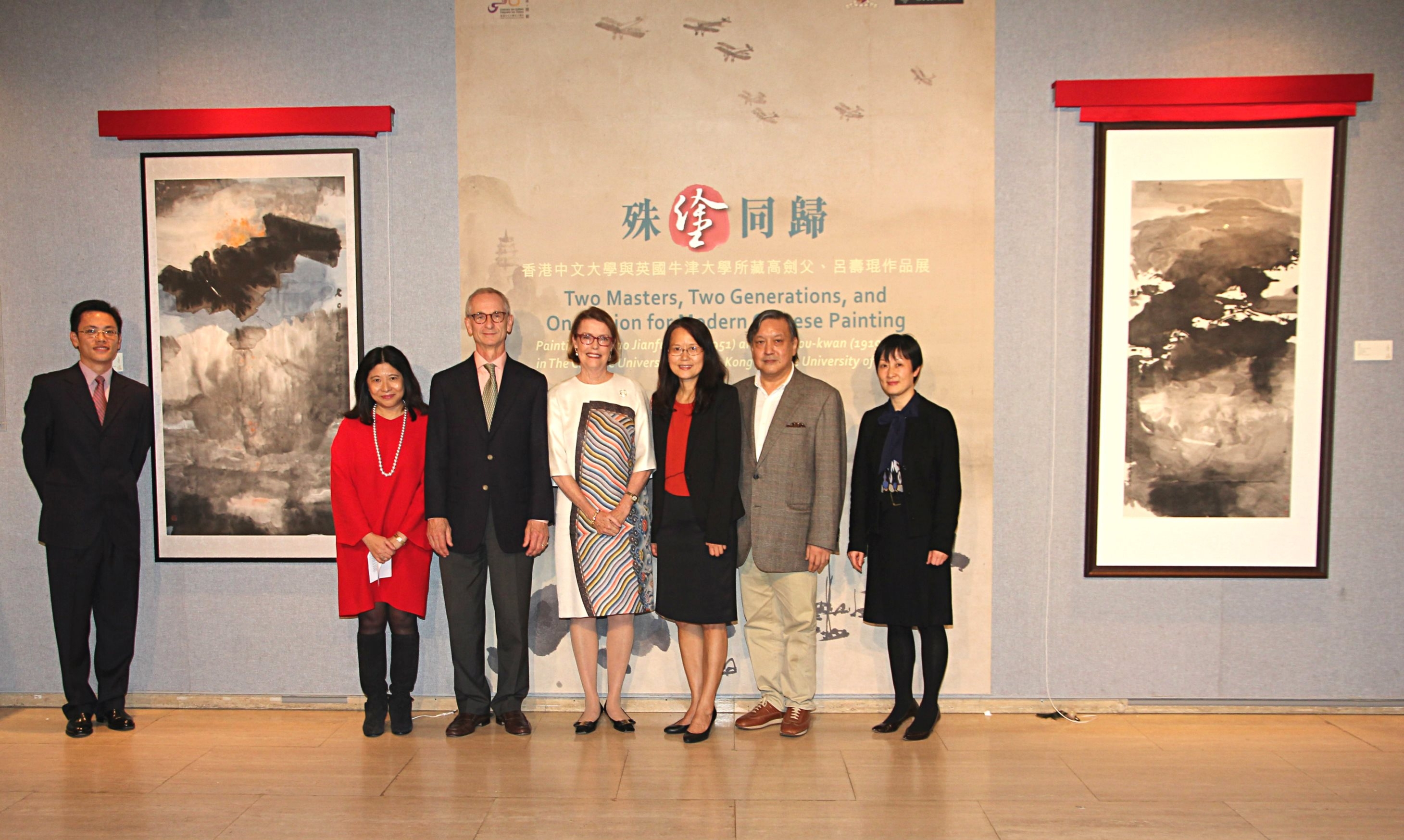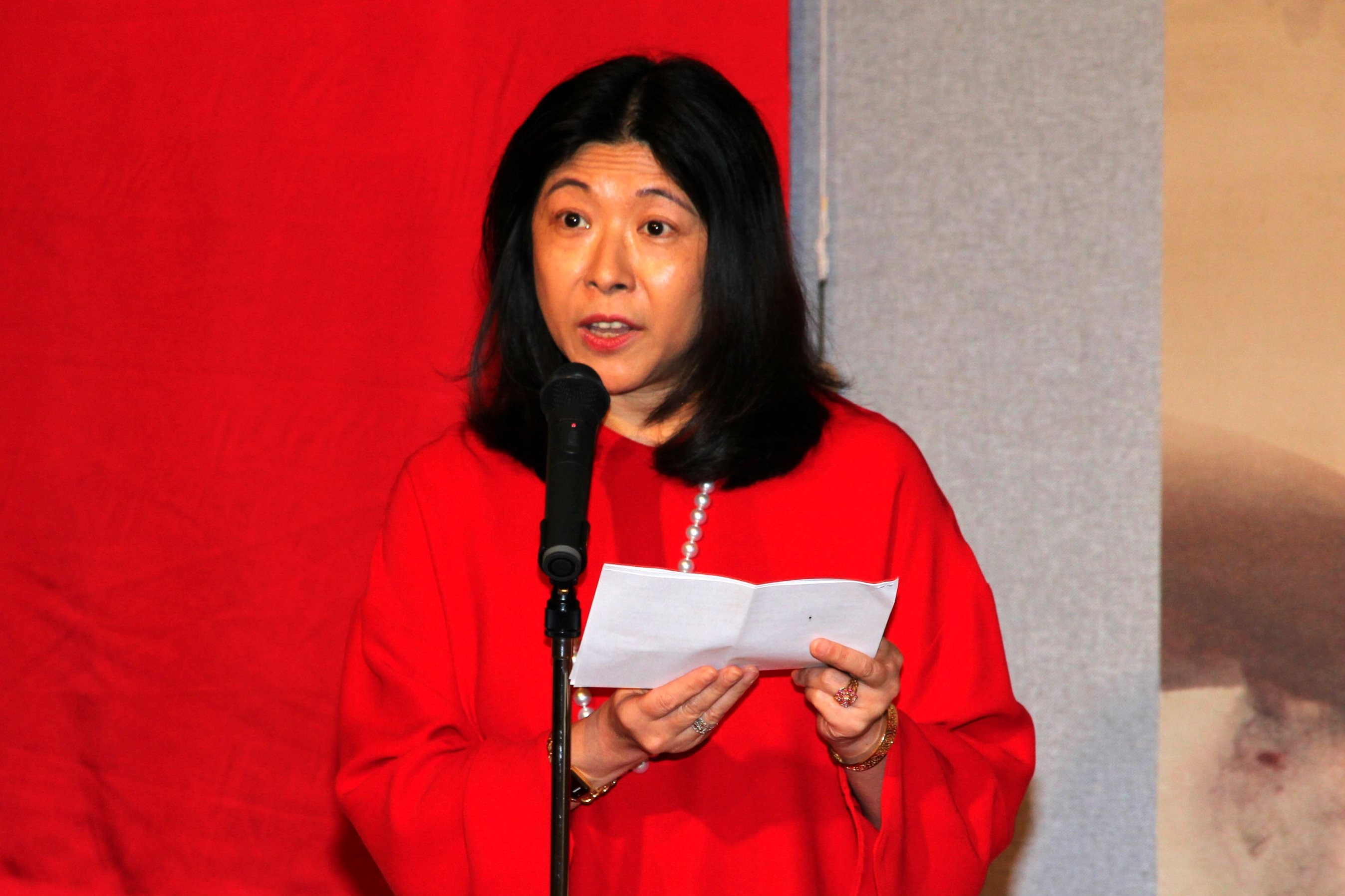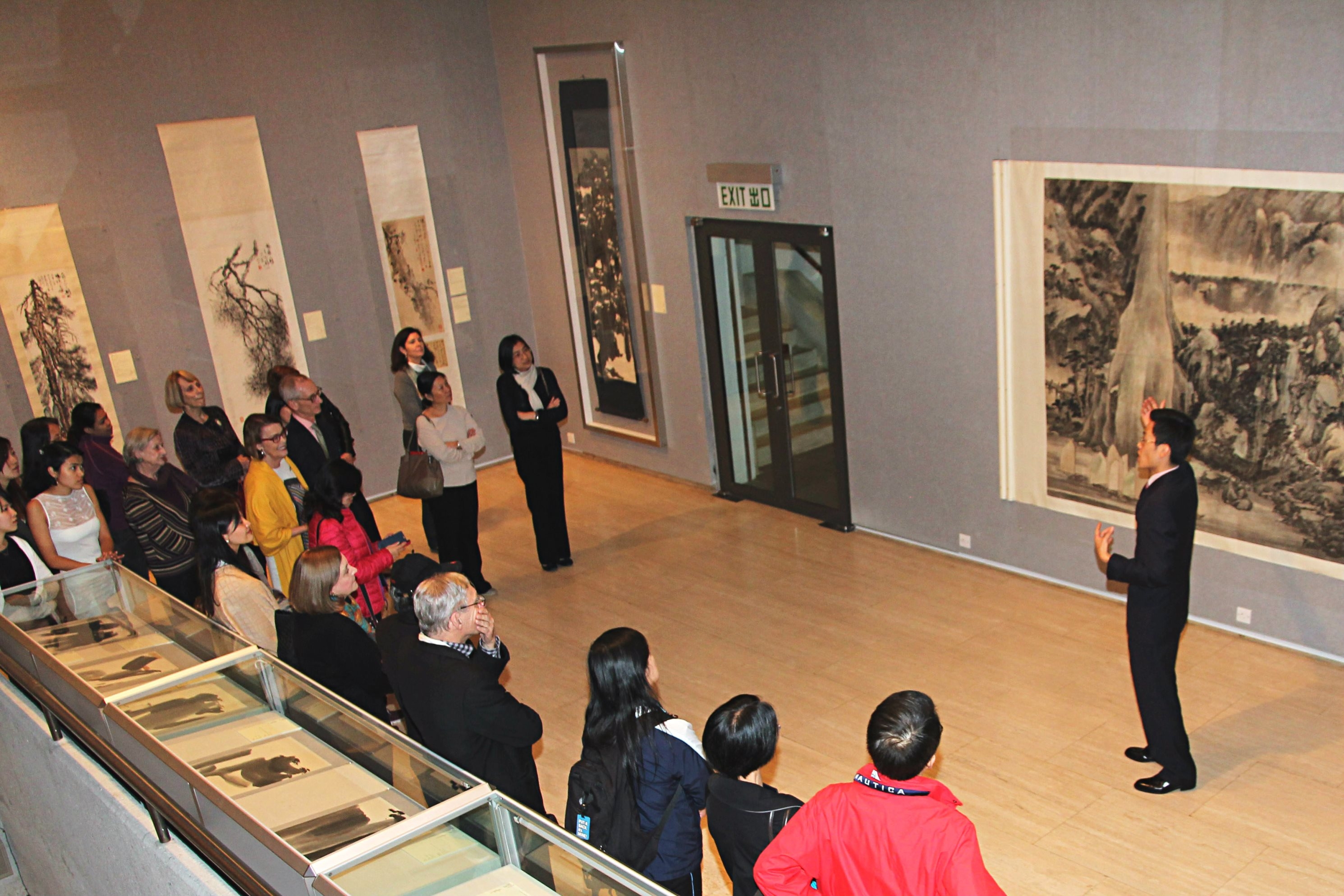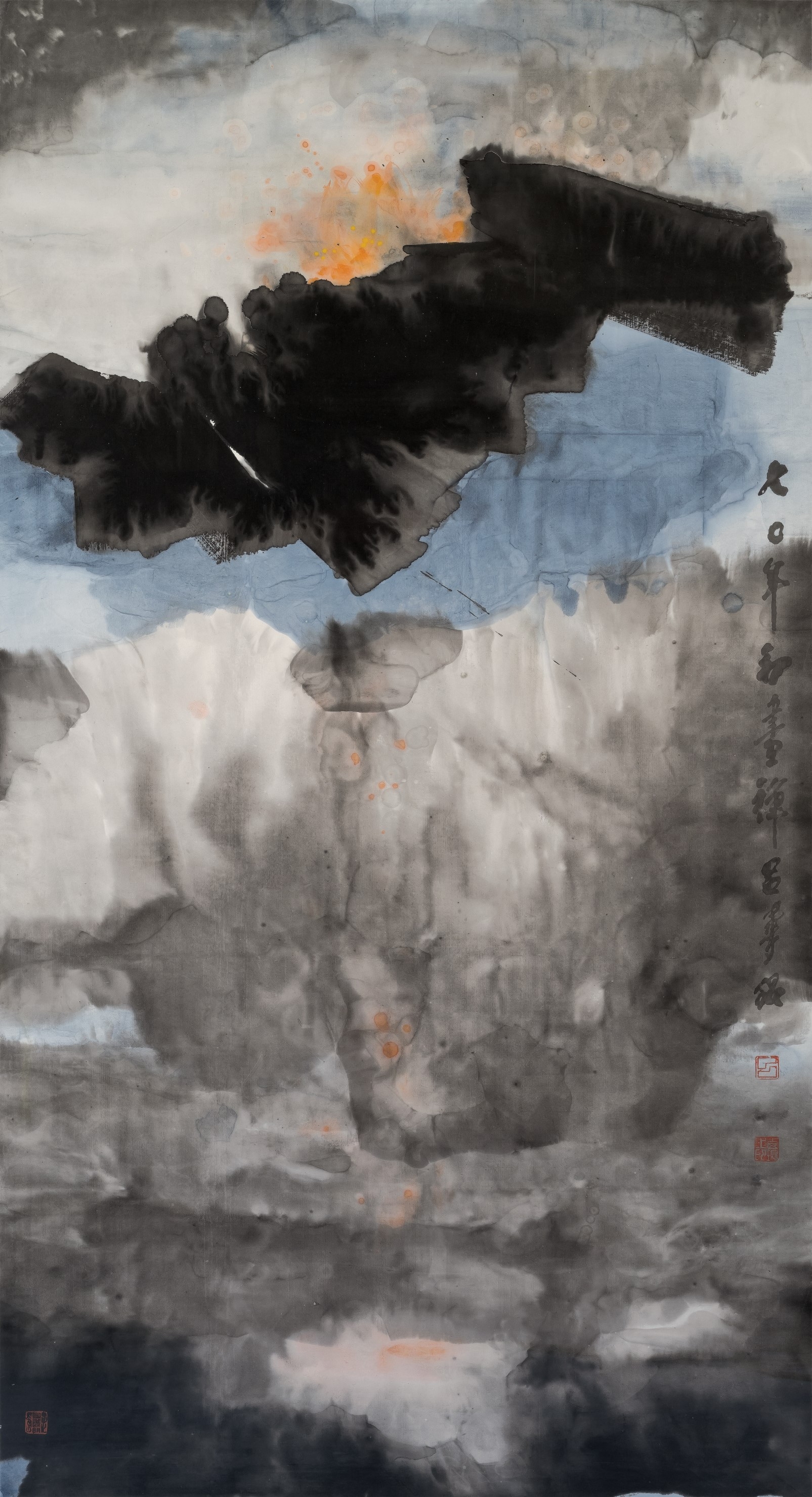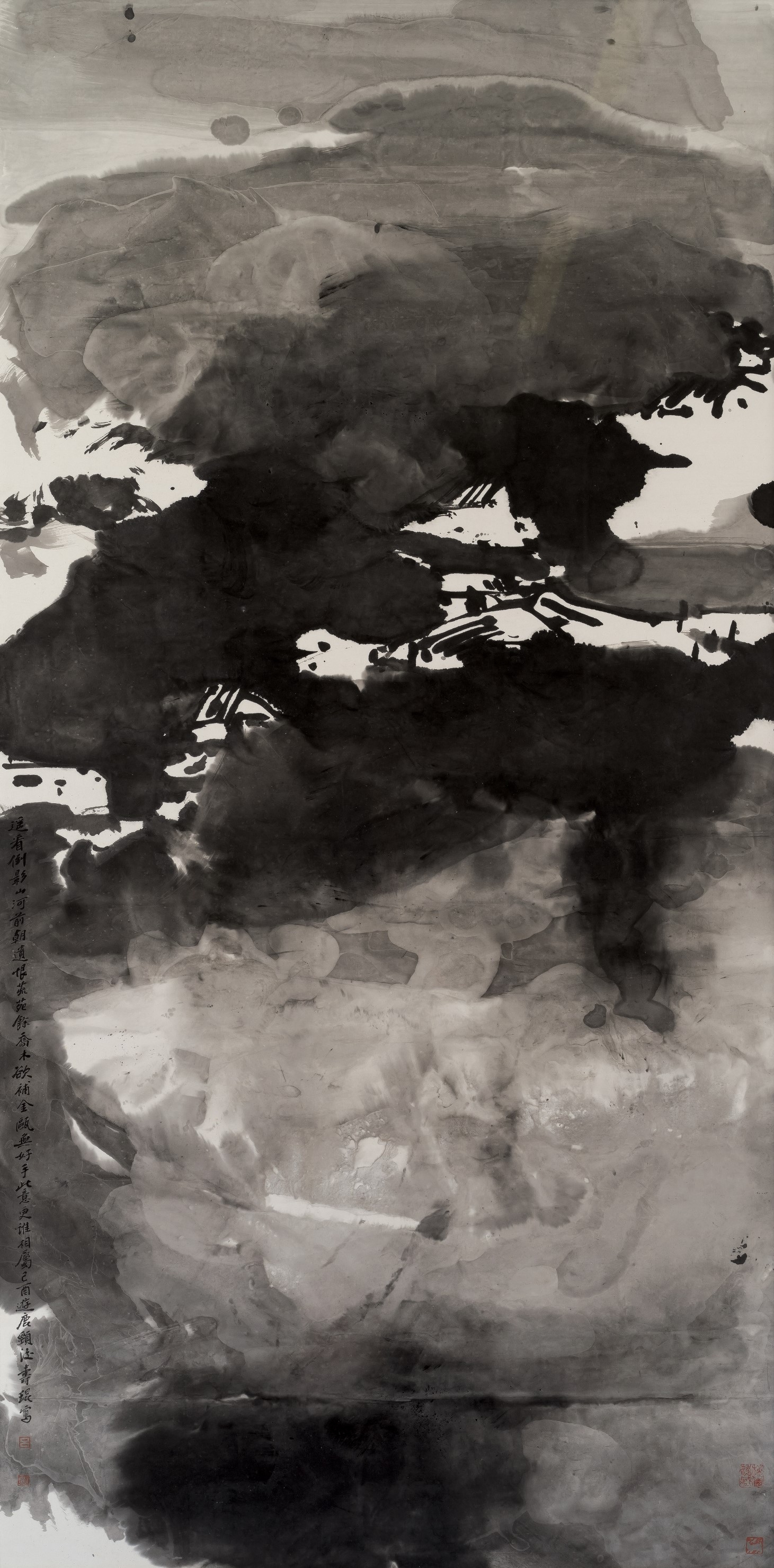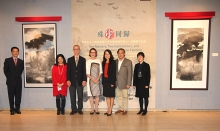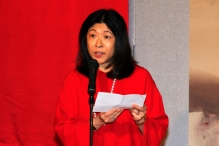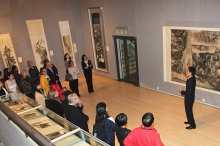CUHK
News Centre
CUHK Art Museum Receives Major Art GiftsTwo Valuable Paintings by Lui Shou-kwan Enrich CUHK Contemporary Art Collection
The Art Museum at the Institute of Chinese Studies, The Chinese University of Hong Kong (CUHK) recently received two paintings by renowned ink painter Lui Shou-kwan (1919-1975), kindly contributed by the Friends of the Art Museum and two longtime supporters of the museum. Lui was one of the most innovative painters in Hong Kong during the 20th century who played a critical role in advocating ‘new ink painting’ during the 1960s and early 1970s. The two paintings, titled Zen Lotus (dated 1970) and Luk Keng Village (dated 1969), are both iconic works by the artist and have enriched the museum’s permanent collection immeasurably.
‘We are thrilled to receive such a generous gift of art,’ said Prof. Jenny F. So, Director of the Art Museum. ‘While the value of the two paintings is estimated at over HK$2 million, we maintain that their significance lies in their transformative power and innovative visual language.’
Established in 1982, the Friends of the Art Museum strives to support art education and raise art awareness in the community by sponsoring wide-ranging art programmes, stimulating lectures, and multiple scholarships. Over the past three decades, the Friends have donated significant works of art to the Art Museum. In recent years, a ‘Collectors Circle’ was established to cultivate art collectors and donors. Their gift of Zen Lotus and Luk Keng Village by Lui Shou-kwan to the Art Museum was the fruit of strategic fundraising and diligent search with curators of the Art Museum.
Zen Lotus is an important work that indicates Lui’s lifelong interest in traditional lotus painting and Buddhism. Stylistically, this apparently ‘abstract’ work was inspired by lotus paintings in the ‘xieyi’ tradition, especially those by Xu Wei and Bada Shanren, who mastered splash ink to compellingly render the lotus leaves. In his ‘zen’ paintings, Lui Shou-kwan often filled the pictorial space with sumptuous ink wash, which was not subservient to form or representation, and supplemented the ink with a red dot or some bright color. This contrast in ink and color evokes the Buddhist notion of ‘dunwu’ — the moment of enlightenment. Zen Lotus reinforces this notion by showing light emerging from or dispelling darkness.
Another painting, Luk Keng Village, was contributed by two longtime friends and supporters of the Art Museum and the Department of Fine Arts at CUHK. They are also members of the Friends. Painted in 1969, Luk Keng Village is a poetic visualization of the bucolic New Territories, with huts strewn over misty hills rendered in largely abstract forms.
The donation of these important paintings coincides with the current exhibition on paintings by Gao Jianfu (1879-1951) and Lui Shou-kwan. The exhibition, co-curated by the Ashmolean Museum and the Art Museum and drawn exclusively from their collections, marks the first collaboration between the University of Oxford and CUHK. The exhibition has contributed to the growing awareness of Lui’s work. The gift of these two masterpieces by Lui further highlights the legacy of this collaborative exhibition.


